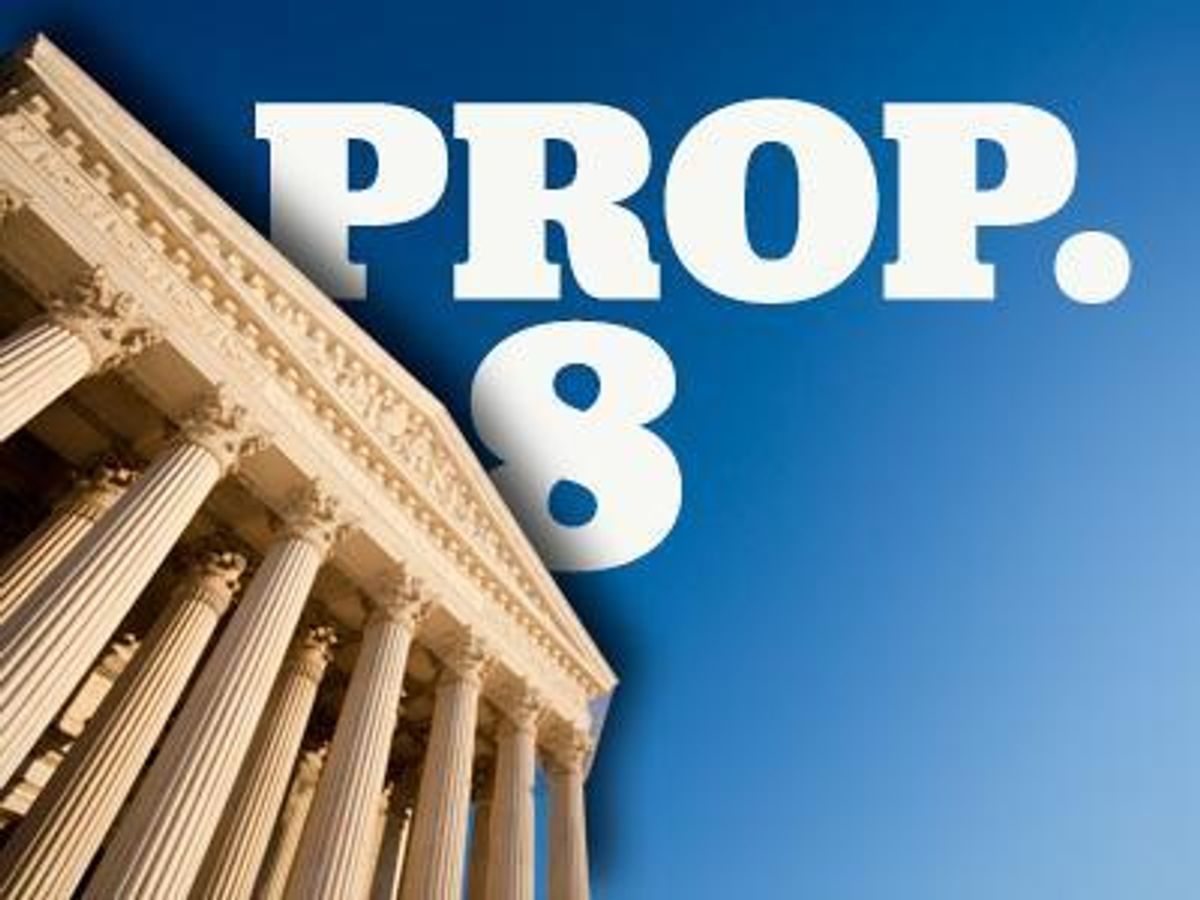
This week California could finally put Prop. 8 behind it and join the six other states with marriage equality. But it's far from a sure thing.
September 30 2012 7:19 PM EST
November 17 2015 5:28 AM EST
Nbroverman
By continuing to use our site, you agree to our Private Policy and Terms of Use.

UPDATE: The Supreme Court did not include the Prop. 8 case in its list released Monday morning.
Could marriage equality be returning to the nation's most populous state this week -- possibly, but don't hold your breath.
Monday marks the start of the Supreme Court's 2012-2013 term, with official announcements of what cases the justices are declining to hear (last week they announced a partial list of cases they were taking and the California marriage equality case was not one of them). So it's a possibility that Perry vs. Hollingsworth -- the federal case against California's Proposition 8, which amended the state's constitution to ban same-sex marriage but was later declared in violation of the U.S. Constitution by a federal judge and a federal appeals court -- could officially be passed on, which would translate to marriage equality soon returning to the Golden State.
But the American Foundation for Equal Rights, the organization that spearheaded the successful case against Prop. 8, says the Supremes could punt on a decision. AFER's Matt Baum says in a video (see below) that the court could decide later in their term to take Perry. If that's the case, AFER will go to court no later than April and argue against the Christian conservatives hoping to keep the marriage ban alive; a decision should be rendered by June.
Many legal experts believe there is more probability that the Supreme Court takes one or more of the four challenges to the Defense of Marriage Act, which denies federal recognition and rights to same-sex couples married in the six states where such marriages are legal (Washington, D.C., also affords marriage rights to same-sex couples). The reason being is that DOMA represents a disconnect between federal and state rights that clearly needs to be reconciled. The Perry case, on the other hand, was decided on much narrower grounds by lower court judges, with rulings that mostly pertain only to California -- the Court could see it as settled and not worth their time. So, while it appears likely that DOMA will enter the Supreme Court fray, the constitutionally of Prop. 8 is much less a sure thing (the high court could also hear another gay rights case, which involves Arizona stripping domestic partner benefits from state employees).
(RELATED: A Look at What Could Be Next From the Supreme Court)
The Supreme Court could want to hold off on whether to hear DOMA and Prop. 8 until after the election, if there are enough justices who don't want to make marriage equality an issue at the ballot. But if influential California becomes the seventh state to legalize same-sex marriage, that could be an issue itself, and Mitt Romney and Paul Ryan could try to use it to their advantage in swing states like North Carolina and Virginia. Marriage equality in California, should it become a big national news story, could also complicate things for the dozens of LGBT candidates running for Senate, House, and statewide offices. Denis Dison, vice president of communications for the Victory Fund, which works to elect LGBT candidates to political office, isn't worried. He believes a sea change has occurred among voters when it comes to same-sex marriage.
"Numerous polls show Americans have grown comfortable with legal protections for same-sex couples," Dison says. "Candidates who run on an overt antigay platform risk alienating independent and moderate voters who see this as an issue of basic fairness for families like their own. Making this an issue in a race where an opponent is openly LGBT would be pretty dumb politics these days."
Stay tuned.
Viral post saying Republicans 'have two daddies now' has MAGA hot and bothered